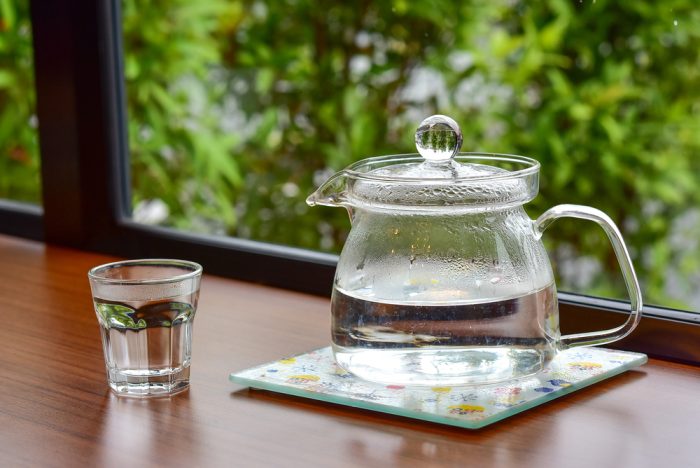
From our American point of view, drinking water at any temperature that isn’t at least slightly chilled may seem off-putting. Even so, water is commonly drunk at higher temperatures around the world in various countries and for various reasons. In some cases, it may be a necessity. However, the question must be asked: what if they’re onto something? What if we’ve been drinking water in the worst possible way this whole time, and we should all switch to chugging down water at a hot or room temperature instead?
In fact, there may be some truth to this. Looking at recent medical studies, there are some benefits to drinking hot water that may be going underappreciated by America at large. The questions that need to be answered from here are simple: is hot water good for you, how so, and are these beneficial effects even noticeable? If you’re up to debate, read on to learn facts and how Altlanta bottled water delivery services can help you.
A Note about Intake
Before we go into whether drinking hot or room temperature water has any health benefits, let’s be crystal clear about one thing: water is water, and as long as it’s clean, it’ll always be the healthiest option. It doesn’t matter what temperature you drink it at; all that matters is that you drink enough of it. If you were to choose between room temperature water or no water, it’s still best to choose the former because dehydration warning signs will be creeping in fast if you don’t.
When it comes to determining if a glass of water is better for your health than another, you should be more concerned with potential pollutants than with the temperature. Because springs are underground systems unaffected by debris, spring water is often a good bet when it comes to avoiding pollution.
Even ice cold water, which some people insist has some sort of major health drawbacks, is just as perfectly fine to drink as any other glass. The benefits and drawbacks of a glass of cold water are so minuscule that, just as with warm and room temperature, whether or not it’s the best choice largely boils down to preference and context. With that being said, those miniscule benefits and drawbacks can feel like a world of difference in the moment, so what are they?
Hot Water
Hot water is usually associated with the preparation of other beverages, such as coffee or tea. But what if you just want hot water? Hot water appears to have a place in American society, but in a more medicinal capacity. Particularly, taking a bath in hot water seems to have universal therapeutic appeal, and in some colder regions, sauna bathing is commonplace and proven to have positive effects on the human body. In many East Asian cultures, and particularly within China, drinking hot water while eating cold food is said to restore balance in the body. Though the belief itself isn’t often practiced in the United States, it isn’t uncommon to see hot drinks being sold alongside cold or tepid foods—cakes are often served with teas and coffees, and some regions are fond of cheesecake as a companion food.
If bathing in hot water is such a positive boon on your health, then is it also true that hot water is objectively the best water for you to drink?
Soothing
Especially when combined with substances like honey and lemon, warm and hot water has been known to have a soothing effect on the body. It can feel like a relaxant and have almost an analgesic effect on sore throats when done properly. In fact, there’s even a use for drinking warm water to relieve painful symptoms in hospital settings. For patients with certain esophageal conditions such as achalasia, drinking warm water pre-endoscopic exploration and procedure reduced the instances of pain and spasms.
It should go without saying, though, that this study was done in reference to warm water, meaning that it wasn’t quite fresh-out-the-kettle levels of hot. As anyone who’s ever had a hot beverage can attest, drinking one before it’s cooled enough to be safely ingested can be a less-than-soothing experience.
Steam
Steam is produced by hot water. This may sound like a no-brainer, but it’s the key to its numerous therapeutic benefits. Steam from hot water has been proven to have a soothing effect on the human body on several occasions, and this can be best demonstrated by drinking hot water when suffering from a cold. The steam, combined with the higher warmth of your mouth, can expand your airways and help clear out blocked sinuses, which can be a godsend when suffering from a cold.
This can be a double-edged sword, though. When drinking hot water for the steam effects, it’s important to not make the water too hot. If the steam you inhale is too hot, you could scald your lungs, potentially leading to lifelong complications.
Shivering
The brain is an easily fooled lump of tissue. If you’ve ever looked at a book of optical illusions, or maybe seen a magic act, you’ll know that our brain relies a bit too much on vision to tell us how the world is sometimes, and our bodies will react to situations that just aren’t real as if they are. Similarly, if you drink hot water on a cold day, you won’t actually have an increase in body temperature. However, due to how hot the water looks and feels, you will stop shivering, despite still being just as cold internally as you were before. That’s right: one of the main benefits of drinking hot water is purely psychological.
Of course, this doesn’t make the effect any less beneficial. While it definitely means you shouldn’t stay out in the cold for a longer period of time—frostbite and hypothermia are not to be trifled with—it can mean that your overall motor performance is improved while you are out there in the snow. Whether that’s a pure placebo or not hardly matters so long as results are given.
The Digestion Question
It’s a common anecdote that drinking warm water, especially in the morning, can “kick-start” the digestion process and aid digestion throughout the day. While there are some interesting gastrointestinal symptoms that may occur when drinking warm water—namely an increase in flatulence—there are no current scientific studies out that even discuss the topic. As a result, this perceived health benefit is thought of as a myth or placebo by the medical community at large.
It’s a chicken-and-egg scenario: Is it the water’s temperature or the simple fact that being hydrated aids in regular bowel movements? Is it because the water is hot and relaxing to your bowels? Because your gastrointestinal (GI) tract is one huge muscle, the heat of the water may relax it a little, which may aid with constipation. However, it’s just as likely that your earlier bad digestion was caused by dehydration and a lack of water intake in general. Science is still unsure.
Room Temperature Water
Who on earth would deliberately drink water at room temperature, right? A surprisingly large number of people, in fact. As it turns out, the average temperature of a glass of water is a matter of perspective, and while cold water is more inherently tied to an impression of quality, this may be due to the fact that many countries serving water at higher degrees lack the capacity to chill it. In fact, some countries that have the necessary infrastructure still have a cultural preference for tepid water over chilled. Who are we to say that this makes their taste in water “bad” or “wrong”?
In short, it’s possible that our prejudice towards water at room temperature stems from our status as a “first world” country, and specifically the development of our culture here in the United States, rather than any inherent differences in quality. This is something to consider the next time you get a drink of cold water from the faucet. And, of course, there’s still the million-dollar question: if room temperature water really isn’t so bad, then what are the benefits to drinking it?
Benefits
It sure is water, alright. There isn’t much evidence in the way of room temperature water having any additional effects on the human body, positive or negative. Any results that scientists have found, such as any supposed boons to digestion, are minimal at best. For instance, cold water burns eight calories per glass on average due to being slightly harder to digest than room temp water. That’s all well and good, but eight calories is so negligible that you may need to give yourself water poisoning to even see a visible effect. Other supposed benefits of drinking warm water, such as being a constipation aid, hydrating the body after a long night of sleep, and helping to “detox” the body, are all just effects that water has by default.
There aren’t really any drawbacks to drinking water at room temperature—just don’t leave it out too long lest it becomes a breeding ground for pathogens and mold. However, you should be aware that many of the supposedly exclusive health benefits are just the benefits of staying well-hydrated in general. Keeping your body hydrated will help digest food properly, so any temperature glass of water will do when it comes to a morning glass, and detoxifying the body is just something that your kidneys do by default with no need for any temperature regulation or strange cleansing fads. There’s no magic or secret to it—water is just that good for you by default.
Does Temperature Water Really Matter?
Water remains water. Though all water has minor health benefits and drawbacks at any temperature, the most significant factors to consider at any time are whether your water is dirty and whether you’re drinking enough water to begin with. The only role that temperature plays, for the most part, is in determining whether or not someone enjoys the taste and how it feels to drink it—and even that might vary depending on the context in which the water is consumed. No temperature of water is inherently superior to another temperature; it’s just all a matter of perspective and culture.
If you want to ensure that your water is of high quality, there isn’t much better than purchasing it from a respected bottling company. Sure, there are in-home tap filters, but still, it begs the question of where the supply came from in the first place. Our Atlanta bottled water delivery services may be right for you if you want high-quality bottled water that you can trust. Our water is bottled in pharmaceutical-grade glass and originates directly from the Blue Ridge Mountains’ subsurface springs. This means that not only is our water of a higher grade of cleanliness by nature alone, it also contains electrolytes that allow your body to absorb the water easier, leading to a more satisfying glass and better hydration. But if you’re a stern cold or hot water drinker, our water dispensers can serve you well with ensured crisp and clean water.
Water quality isn’t a question at Lipsey; it’s a guarantee.
